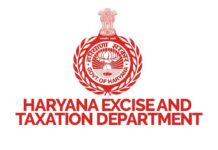THE COMMISSIONER OF CENTRAL EXCISE AND SERVICE TAX, MANGALORE Versus M/s MANGALORE REFINERY AND PETROCHEMICALS LTD.
Stay updated! Join our WhatsApp Channel for exclusive Articles, updates, and announcements.
Join our WhatsApp Channel2016 (1) TMI 481 – KARNATAKA HIGH COURT
Facts :- The facts in brief are that during the course of audit by the Departmental Audit Party, it was noticed that the respondent had availed input service tax credit during the period July 2005 to March 2007 on (i) repair charges; (ii) repair of company vehicles; (iii) rent a cab services used for transportation of staff/guests; (iv) credit taken on invoices which did not bear Sl.No. and registration certificate etc.; pursuant to which, a show cause notice dated 23.08.2007 was issued to the respondent demanding recovery of credit availed on the said services as irregular.
Commissioner & CESTAT In Assessee’s Favour
Being aggrieved by the said order, the respondent preferred an appeal before the Commissioner of Central Excise and CESTAT, who respectively allowed the appeal setting aside the order-in-original.
Hon’ble Karnataka High Court Rules In Assessee’s Favour
5. It is an undisputed fact that the appeal was preferred by the appellant before the CESTAT challenging the decision of the Appellate Authority whereby CENVAT Credit has been allowed in respect of service tax paid for services of repair, maintenance of company vehicles and tax paid on rent-a-cab services. The issue regarding rent-a-cab services is raised and considered in extenso by the Division Bench of this Court in Stanzen Toyotetsu India (P) Ltd. (supra) wherein this Court has clearly held that the rent-a-cab services provided by the assessee to the workers to reach the factory premises well in time, would have a direct bearing on the manufacturing activity. This is considered to be a basic necessity to ensure that the work force comes in time at the work place and the manufacturing activity proceeds smoothly and effectively. It has also held that Rule 3 of Cenvat Credit Rules, 2004, specifically provides that the manufacturer of final products shall be allowed to take credit, the service tax liable under Section 66 of the Finance Act, 1994, one which is paid on any input service received by the manufacturer of a final product.
6. It is thus clear that under the Scheme of Cenvat Credit Rules, 2004, the assessee is entitled to claim the credit on the service tax paid on all those services which the assessee has utilized directly or indirectly in relation to a final product involved in the manufacturing activity. On the issue of allowing benefit in respect of repair and maintenance of motor vehicles, Tribunal has followed Tata Steel Ltd., case 2011(21) STR 444 (Tri-Mum), which is justifiable. We are of the opinion that the service tax paid for services of repair, maintenance of company vehicles/rent-a-cab services are in relation to the business activities of the company, which is directly or indirectly involved in the manufacturing activity of the final product, is an input service. As such, the CENVAT credit claimed on these two services namely, service tax paid for repair on Company vehicles and, rent-a-cab services would come within the realm of Rule 3 of Cenvat Credit Rules, 2004 read with Section 66 of the Finance Act, 1994 and thus, the assessee is entitled for the Cenvat credit of service tax paid on the input services. The judgment of this Court in M/s. Stanzen Toyotetsu India (P) Ltd. (supra) is squarely applicable to the facts of the present case and the Tribunal is right in dismissing the appeal filed by the Revenue following the said judgment.
7. However, we are surprised to notice the argument advanced by learned counsel for the appellant that in view of the policy decision taken by the Central Government that for the reasons of monetary value the judgment of Stanzen Toyotetsu India (P) Ltd. (supra) is not challenged thus, the said judgment has no value as a precedent in the subsequent cases. This argument is totally misconceived. The decision of the Central Government to challenge a judgment or not is within its wisdom and reason. Such decision is not binding on the Courts. On the other hand, the judgment passed by the co-ordinate Bench of this Court has binding value and this Court is bound by the said judgment, unless it is disagreed and referred to a larger Bench.
8. We do not find any reason to deviate from the Division Bench judgment of this Court in Stanzen Toyotetsu India (P) Ltd. (supra).
9. Accordingly, we confirm the order passed by the Tribunal as no substantial questions of law arises for our consideration. The appeal stands dismissed as devoid of merits.
CA Ankit Gulgulia (Jain) | ankitgulgulia@gmail.com
Related Tags Cenvat, HC Judgements
Stay updated! Join our WhatsApp Channel for exclusive Articles, updates, and announcements.
Join our WhatsApp Channel



